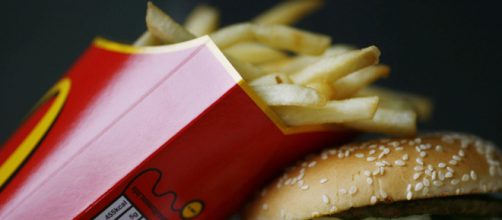Fast food giant, McDonald's, have said all of their packagings will be renewable, recyclable or from certified sources by 2025.
Currently, only 10% of McDonald's chains worldwide are recycling their packaging, with the incentive being that all of their 37,000 branches will be recycled by the same deadline.
It comes as Prime Minister Theresa May has pledged to ban all plastic waste in the United Kingdom by 2042.
Mrs May laid out her plastic crusade in a keynote speech alongside senior cabinet minister Michael Gove - the PM confirmed all shops will soon have to introduce a 5p charge on carrier bags and assured her commitment with the government in order to significantly reduce the amount of plastic wrapping on store shelves.
McDonald's vs Campaigners
McDonald’s have often been accused of polluting the world’s oceans by environmental campaigners – with the organisation ‘Sum of Us’ recently collecting 373,962 signatures on a petition, which urged the fast-Food Chain to stop using plastic straws in its restaurants.
According to Greenpeace: “Plastic pollution is one of the biggest threats to our oceans, and straws are one of the most common plastic items found in beach clean-ups.”
“A total of 8 million tones of plastic ends up in our sea every year. As a result it’s estimated that every year a million seabirds and 10,000 marine animals – such as sea turtles – die. Plastic straws dumped into the sea get stuck in sea turtles’ nostrils, lodged in the stomach of baby seabirds, and end up in our food chain after being eaten by fish,” Sum of Us added.
In the UK, McDonald’s no longer use foam packaging and more then 1,000 restaurants have recycling bins for plastics and paper cups. They now aim for all it’s paper and card packaging to come from recycled sources by 2020 or sites where no deforestation takes place.
McDonald’s and other high profile brands have been under increased pressure of late due to recent media exposure about the environmental effect plastic is having on the planet.
The news of McDonald's pledge on plastic follows the lead of British supermarket chain Iceland who have announced that they will eliminate the use of plastic packaging in 900 of their stores by the end of 2023.
What is the EU's plastic strategy?
The EU have announced their first-ever Europe-wide strategy on plastics this week as part of their pressing plan to clean up Europe’s plastic act – ensuring that every piece of packaging in the continent will be reusable or recyclable by 2030.
Brussels launched the strategy on Tuesday with the aim to change Europe’s perceptions of plastic recycling, by modernising plastics production and collection using a €350m investment through research.
The political and economic union vow to recycle 55% of all plastic by 2030, promote easy access to tap water on the streets of Europe to reduce the requirement for bottled water and also lower the amount of bags used per person from 90 a year to 40 by 2026.
Under the strategy, the European Union will make recycling profitable for business, curb plastic waste, stop littering at sea, drive investment and innovation and encourage change across the world.


